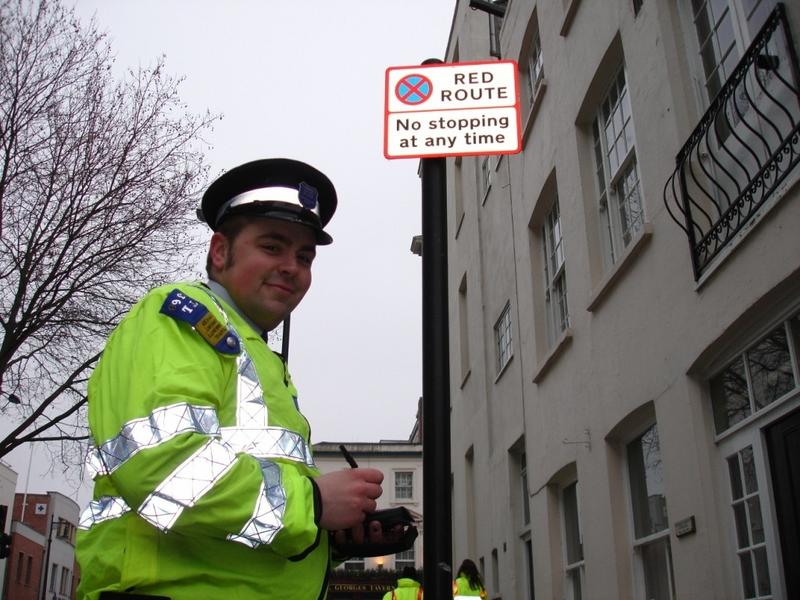Traffic wardens can be handy
The Metropolitan Police will still be getting tough on drivers who don't obey the rules of London's roads, but new handheld devices mean they can also help as well as enforce


Traffic wardens in London may soon turn from figures of hate to being renowned for making it easier for drivers and commuters to get around the city's roads more speedily thanks to an innovative mobility project.
Following on from a successful trial, 850 users have been equipped with lightweight T-Mobile MDAIII handhelds and AMT-SYBEX's Field Data Collection System (FDCS).
The Met's traffic wardens and traffic police community support officers (TPCSOs) are responsible for managing some of Transport for London's (TfL) busiest roads, also know as Red Routes. While these roads only account for five per cent of the capital's roads, they carry more than a third of its traffic, meaning immediacy of data is key.
The new handhelds, which feature pre-loaded TfL map data, built-in cameras and Bluetooth-enabled printers, replace the incumbent paper-based systems.
In addition to issuing penalty charge notices, staff will now use the devices to relay advanced warning of problems back in real time to the TfL Control Centre so that it can take proactive measures rather than reactively dealing with serious traffic issues and bottlenecks.
The mobility project is part of TfL's wider 'Keep London Moving' initiative designed to ensure traffic flows smoothly through the city.
"Anyone that has travelled through London appreciates how important it is to keep the Red Routes clear," said Derek Williamson, director of business sales for T-Mobile UK.
Sign up today and you will receive a free copy of our Future Focus 2025 report - the leading guidance on AI, cybersecurity and other IT challenges as per 700+ senior executives
"This project will enable police personnel to conduct their job more effectively and will ensure that the TfL Control Centre has the most up-to-date information possible when trying to ensure that these routes, which are the lifeblood of London, are kept clear."
Since it took over responsibility for looking after London's roads in 2000, TfL has shown a promising interest in innovative technology.
Just a few months ago, for example, it unveiled a digitally-enhanced smart car to sort out London's congestion problem.
The car featured automatic number plate recognition cameras, enhanced Global Positioning Systems (GPS) and DVD recording.
The vehicle's introduction formed part of a Digital Traffic Enforcement System (DTES) and, according to TfL, it marked the first use of digital technology that will eventually replace its existing violation-supporting analogue systems.
"This was a pioneering project, which has thrust traffic enforcement into the digital age by fusing a number of technologies together for the first time," said Jim Lewis, TfL's Project Manager for DTES.
"The development of the new system has demanded strong teamwork, flexibility and innovation from all those involved over the past three years and we're confident that where Transport for London has led, others will soon follow."
Maggie has been a journalist since 1999, starting her career as an editorial assistant on then-weekly magazine Computing, before working her way up to senior reporter level. In 2006, just weeks before ITPro was launched, Maggie joined Dennis Publishing as a reporter. Having worked her way up to editor of ITPro, she was appointed group editor of CloudPro and ITPro in April 2012. She became the editorial director and took responsibility for ChannelPro, in 2016.
Her areas of particular interest, aside from cloud, include management and C-level issues, the business value of technology, green and environmental issues and careers to name but a few.
-
 Cyber resilience in the UK: learning to take the punches
Cyber resilience in the UK: learning to take the punchesColumn UK law now puts resilience at the centre of cybersecurity strategies – but is legislation simply catching up with enterprise understanding that resilience is more than just an IT issue?
-
 CISPE claims European Commission gave Broadcom a ‘blank cheque to raise prices, lock-in, and squeeze customers’ with VMware deal
CISPE claims European Commission gave Broadcom a ‘blank cheque to raise prices, lock-in, and squeeze customers’ with VMware dealNews Cloud providers have issued a formal response to the General Court of the European Union after the Commission defended its approval of the deal
